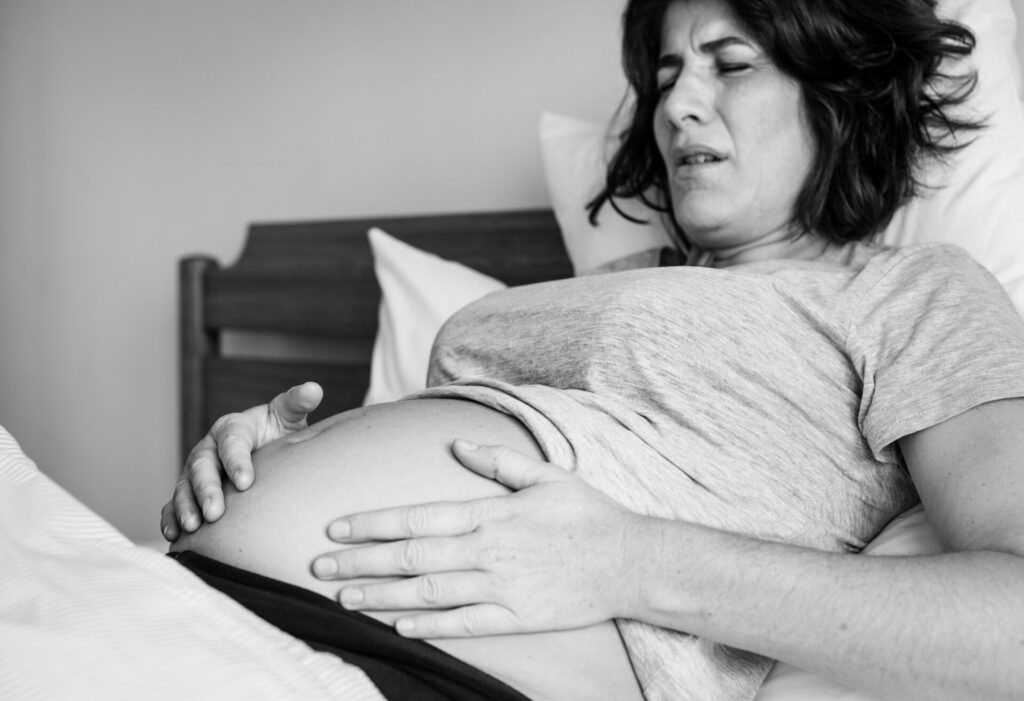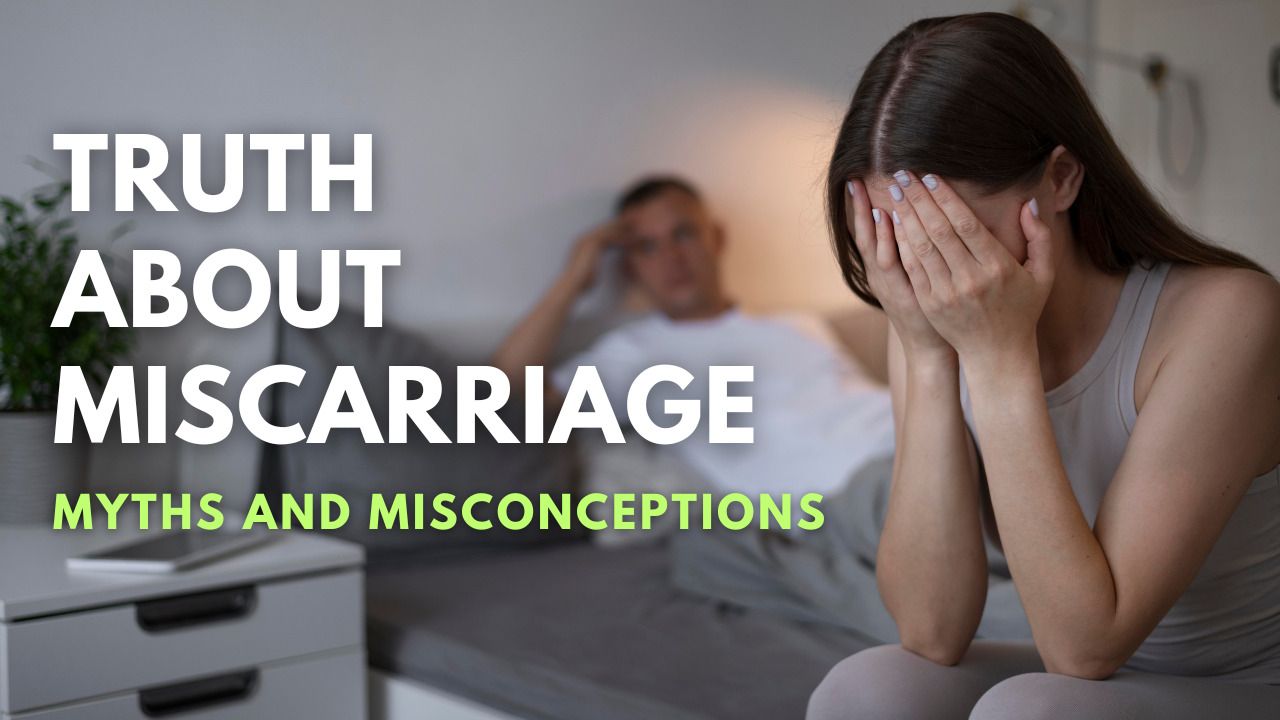Discover the real truth about miscarriage and some common myths that can harm you. Read this article now to find out.
Introduction
A miscarriage occurs when a pregnancy comes to an end before reaching the 20-week mark. It’s quite common, affecting 10-20% of known pregnancies. But even though it’s pretty widespread, there are lots of wrong ideas about it that can make people who’ve gone through it or know someone who has felt confused, guilty, or anxious. In this article, I’ll give you the real truth about miscarriage, and clear up some of the myths you might have heard. I want to help you understand what causes it, how to deal with it, and how to avoid it.
Understanding Miscarriage
What is Miscarriage?
A miscarriage is when a baby doesn’t make it in the womb before 20 weeks. It’s quite common, happening to 1 or 2 out of every 10 pregnant women. Usually, it’s because the baby has something not quite right with its genes, which keeps it from growing properly.
Going through a miscarriage can make the person who’s pregnant and their partner feel really sad. Sometimes, they might need some help from a doctor or a counsellor.

Causes
You might wonder why miscarriages happen. Well, here are some of the main reasons:
Chromosomal Issues
These are basically mistakes in the baby’s genes that mess up its growth. They’re the top reason for miscarriages, causing about 50-70% of them.
Hormone Problems
Sometimes, hormones that help the pregnancy don’t work right. Think of hormones like progesterone, thyroid, or insulin. If they’re off, it can mess with how the baby gets nourishment and oxygen.
Weird Uterus Disorders
Your uterus can have problems like fibroids, polyps, or an uneven shape. These issues can make it hard for the baby to grow right or even lead to bleeding or infections.
Infections
Sometimes, bacteria or viruses can infect the mom or the baby. These infections can cause inflammation, hurt the baby’s organs, or mess up the placenta.
Women’s Age
How old the mom is when she gets pregnant matters too. When moms are older, like over 35, there’s a higher chance of problems with the baby’s genes. So, the risk of miscarriage goes up as the mom gets older.
Obesity
If you are overweight or obese, there is a greater chance of miscarriage. But, don’t worry. You can reduce your weight by applying Intermittent Fasting to your lifestyle.
Myths About Miscarriage
Myth 1: Miscarriage is rare
You might have heard a very common myth about miscarriage – that it’s super rare and only affects a few unlucky women. Well, that’s not true at all.
Miscarriage isn’t rare; it’s just that not everyone talks about it openly. Why? Because some people feel kind of embarrassed or isolated when it happens. They worry about being judged or pitied.

But here’s the real truth about miscarriage: Miscarriage is actually quite common and can happen to anyone. Data shows that it occurs in 1 out of every 4 pregnancies, and the risk goes up as the mom gets older.
So, if you’ve been through a miscarriage, you’re definitely not alone. You’re not some weird exception. You’re just one of the many who’ve gone through a natural and unpredictable thing that can happen to anyone.
Myth 2: Miscarriage is always caused by something the pregnant woman did or didn’t do
There’s a myth about miscarriages that says they happen because the pregnant woman did something wrong or forgot to do something right.
Some people believe things like stress, exercise, sex, food, medicines, or lifestyle choices can cause miscarriages. They might think that avoiding these things or doing certain stuff can stop them from happening.

But here’s the truth about miscarriage: Most miscarriages are actually caused by random problems with the baby’s genes. These issues happen when the egg or sperm has too many or too few genes or when the genes don’t split up right when the cells are growing. It’s got nothing to do with what the pregnant women did or didn’t do. It can happen to anyone, and it’s not a sign of bad health or fitness.
Now, that doesn’t mean you shouldn’t take care of yourself during pregnancy. There are things like smoking, drinking alcohol, having too much caffeine, using drugs, or being around bad chemicals that can make a miscarriage more likely.
But they’re not the direct cause of it, and avoiding them doesn’t guarantee you won’t have one. It’s important to listen to your doctor’s advice on staying healthy while pregnant and talk to them if you’re worried about anything.
The bottom line is, you’re not to blame for your miscarriage. There’s nothing you could have done to stop it, so don’t feel guilty. It was totally out of your control.
Myth 3: You can always feel a miscarriage happening
Some women might believe that they’ll definitely notice a miscarriage because they think there’ll be clear signs like bleeding, cramps, or pain. But, you know what? Here is the real truth about miscarriage. Not every miscarriage comes with these signals. Some can happen without any symptoms at all.
Now, let’s talk about the different types of miscarriages, and how they can show up:
Types of Miscarriages
Missed Miscarriage
It’s when the baby stops growing, but it just hangs out in the uterus quietly. No bleeding, no pain. You might find out about it when you go for a regular ultrasound or if the doctor can’t hear the baby’s heartbeat.
Incomplete Miscarriage
An ‘incomplete miscarriage’ is when not everything from the pregnancy comes out of the uterus. This can lead to heavy bleeding, clots, pieces of tissue, cramps, or pain.
Complete Miscarriage
A ‘complete miscarriage’ is when everything from the pregnancy comes out of the uterus. This might lead to light bleeding, some spotting, cramps, or pain.
Threatened Miscarriage
A ‘threatened miscarriage’ happens when there’s some bleeding or spotting, but the cervix stays closed, and the pregnancy keeps going. Sometimes it goes away on its own, or it could turn into a complete miscarriage.
Inevitable Miscarriage
An ‘inevitable miscarriage’ is when you see bleeding or spotting, and the cervix opens up, and the pregnancy can’t go on. This might end up as an incomplete or complete miscarriage.
Septic Miscarriage
A ‘septic miscarriage’ happens when an infection in the uterus brings on a fever, chills, bad-smelling discharge coming out, or abdominal pain. Fixing it might need antibiotics or surgery.
If you’re worried about your pregnancy or if something doesn’t seem right like heavy bleeding, bad discharge coming out down there, serious abdominal pain, fever, or an infection, don’t wait around. Get in touch with your doctor or head to the closest emergency room as soon as possible.
They might need to give you a check-up, use an ultrasound, or do some blood tests to figure out what’s going on and if there are any issues. Depending on what they find and how far along you are, you could get some medicine or even need surgery to sort things out.
Myth 4: Miscarriage is caused by stress and negative emotions
Some people might think that stress and negative feelings like anxiety, fear, anger, sadness, or grief can make a miscarriage more likely. They may believe that these emotions could harm the baby’s growth or the placenta’s function. Some even feel like they have to stay positive and happy all the time during pregnancy to avoid a miscarriage.
But here’s the real truth about miscarriage: There’s no scientific proof that stress or negative emotions can cause a miscarriage. Pregnancy can be a tough and emotional period, especially for women who’ve struggled with infertility or had miscarriages before. It’s totally normal to have different feelings during pregnancy and go through some ups and downs. But guess what? These feelings don’t harm your baby or your pregnancy at all.
But don’t get me wrong, it’s important to take care of your mental health and well-being during pregnancy. If you ever feel overwhelmed, down, anxious, or troubled by a miscarriage or anything else life throws at you, it’s a smart move to reach out to a professional. There are several people and resources out there ready to lend a hand, listen, and guide you through your tough situation.
Plus, you can try out some self-care tricks like chilling out, meditating, doing breathing exercises, or getting into yoga. All of these can help you dial down the stress and boost your mood.
And remember, you’re not in this all by yourself. Plenty of caring people are rooting for you and eager to support you during this challenging time.

Myth 5: If you miscarry once, you will miscarry again
Lots of women might worry that if they have a miscarriage once, it’ll happen again. This can make them feel like they’ll never have a successful pregnancy and they might get really anxious every time they try to get pregnant again.
But here’s the real truth about miscarriage: having one miscarriage doesn’t mean you’re doomed to have another. In fact, most women who’ve had one or two miscarriages go on to have a healthy pregnancy later. Only about 1% of women have recurrent miscarriages, which means they’ve had three or more consecutive losses.
Now, let’s talk about why some women might experience multiple miscarriages. It can happen due to things like genetic issues, problems with the uterus, hormone imbalances, or even issues with the immune system. But don’t worry, these causes are pretty rare, and most of the time, they can be figured out and treated.

So, if you’ve had recurrent miscarriages, it’s a good idea to see a specialist. They can run tests on both you and your partner, and even check out the products of conception to figure out what’s going on. Once they know the cause, they can offer you some treatment options.
Here’s the bottom line: having a miscarriage doesn’t mean you won’t ever become a parent. There’s still a really good chance that you can have a successful pregnancy in the future. So, don’t give up on your dreams of having a baby.
Foods to Avoid During Miscarriage
Sometimes a question comes into our mind – “Which food can cause miscarriage?“. So here is the answer:
Sliced Meats and Raw Milk Products
When you’re pregnant, you’ve to watch what you eat. Some foods can be risky ’cause they might have harmful bacteria. Take deli meats and soft cheeses, for instance – they can have this bacteria called listeria. And that little one can lead to big problems like losing the pregnancy or having a stillbirth. So, make sure you steer clear of these foods when you’re expecting.

High-Mercury Fish
Fish can be a good source of omega-3 fatty acids, which are pretty awesome. But, here’s the catch: some fish, like sharks, swordfish, king mackerel, and tilefish, have a lot of mercury in them. And that mercury can mess up a growing baby’s nervous system. So, if you’re pregnant, make sure you stay away from these fish.
Raw Eggs and Undercooked Meat
Watch out for salmonella, a nasty bacteria that can be found in eggs and meat that aren’t cooked properly. This bacteria can give you food poisoning and could even mess up a pregnancy. So, make sure you cook those foods really well before eating them.
Caffeine and Excessive Sugar
When you’re pregnant, don’t go overboard on caffeine – it can increase the chances of losing the pregnancy. And eating a lot of sugar? Well, that could lead to gestational diabetes, which might mess with how your pregnancy goes. So, take it easy on the caffeine and watch those sugar levels.

Unwashed Produce
When you’re expecting, eating unwashed fruits and veggies might expose you to pesticides and germs. But no worries, you can cut down on these risks by giving your produce a good wash before eating.
Conclusion
Miscarriages happen a lot, but people don’t always get what they really are. There are lots of stories out there that can mess with your head and make you feel guilty or scared if you’ve gone through it or know someone who has. In this article, I’m here to set the record straight and give you the real truth about miscarriage.
Now, let’s talk about eating right when you’re pregnant. Some people get all hung up on certain foods, thinking they might cause a miscarriage. But honestly, we don’t have all the answers about that. So, instead of obsessing over specific foods, just focus on having a well-balanced diet.
I hope this article has helped you understand what miscarriages are all about, why they happen, how to deal with them, and how to keep them from happening.
If you’ve been through a miscarriage or know someone who has, I want you to know I’m right there with you. It’s tough dealing with the loss of a pregnancy, the changes in your body, and even in your relationships. But, don’t forget, there’s hope and strength in you. You’re not alone, you’re not a failure, and you’ve got the power to heal and move forward.
I really hope this article (Truth about Miscarriage: Debunking Myths and Misconceptions) was useful and gave you some good information. If you’ve got any queries or feedback, just comment below. Thanks for reading.
Need Support – March of Dimes (This is a group in the US that’s all about making sure moms and babies stay healthy. They do this by stopping birth defects, premature births, and babies passing away early)
